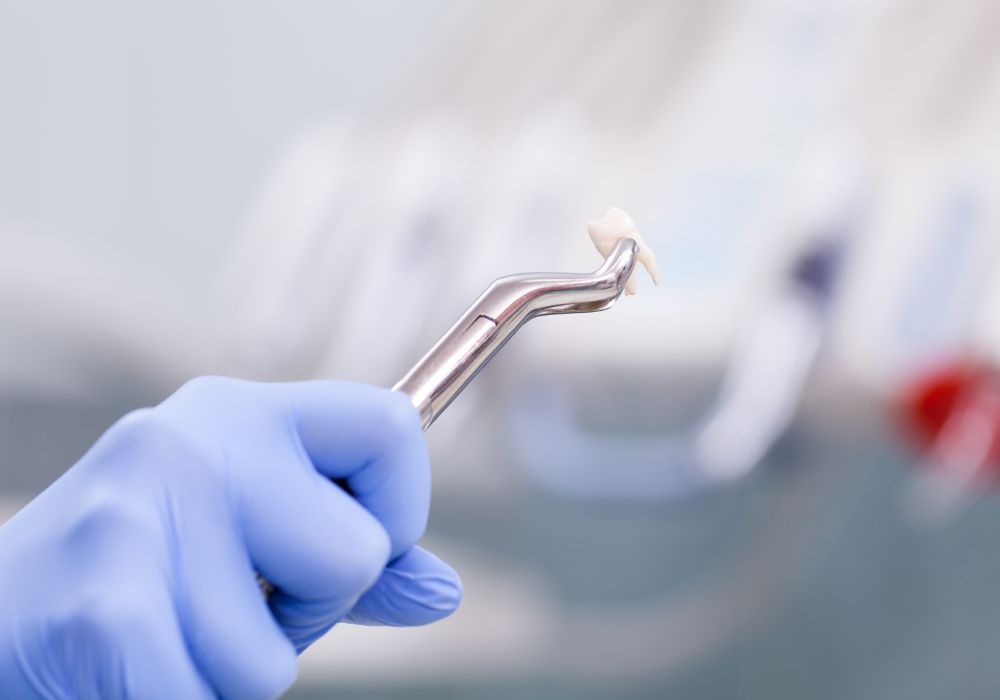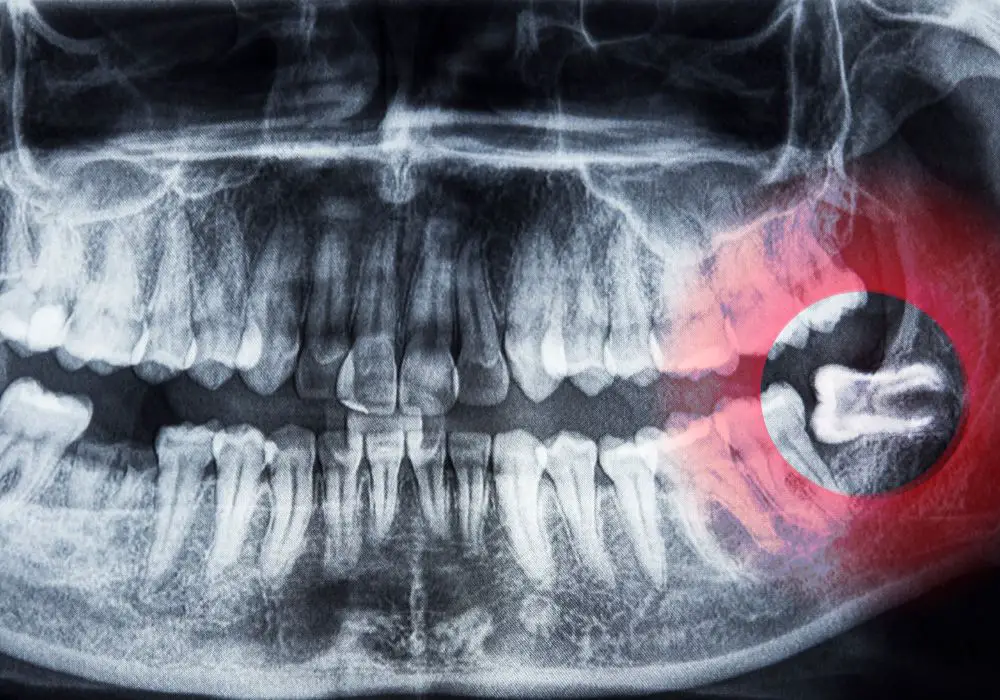Have you ever wondered when wisdom teeth got their name? These molars, also known as third molars, are the last teeth to emerge in the human mouth, usually appearing between the ages of 17 and 25. Wisdom teeth can cause a lot of pain and discomfort, and many people undergo surgery to have them removed. But where did the name “wisdom teeth” come from?
According to some sources, the term “wisdom teeth” can be traced back to the 17th century, when they were known as the “teeth of wisdom.” Others believe that the name originated in the 19th century. However, the idea that these teeth are associated with wisdom and maturity goes back even further. Aristotle wrote about them in his book “History of Animals,” which dates back to the 4th century BC.
Despite their name, wisdom teeth do not actually have any connection to intelligence or wisdom. So why are they called that? In this article, we will explore the history of wisdom teeth and how they got their name. We will also look at why these teeth can cause so many problems and what you can do about it.
Origins of the Term ‘Wisdom Teeth’
Wisdom teeth are the third molars that typically emerge in the late teenage years or early adulthood. But why are they called wisdom teeth? The term has an interesting history that dates back to ancient times.
According to Aristotle’s “History of Animals,” wisdom teeth were first mentioned in the fourth century BC. Aristotle referred to them as “molars called ‘wisdom-teeth,’ which come at the age of twenty years, in the case of both sexes.” However, it wasn’t until the 19th century that the term “wisdom teeth” became widely used.
One theory suggests that the name “wisdom teeth” comes from the idea that these teeth emerge at a time when people are becoming wiser and more mature. As young adults begin to gain new experiences and take on more responsibilities, they are thought to be gaining wisdom. Hence, the name “wisdom teeth.”
Another theory suggests that the name “wisdom teeth” comes from the fact that they emerge later in life, after all of the other teeth have already come in. This delayed emergence is thought to represent a kind of “delayed wisdom.”
Despite the name, wisdom teeth can often cause problems for people, such as pain, infection, and crowding of other teeth. In some cases, they may need to be removed to prevent further complications.
Historical Context
Wisdom teeth have been around for a long time, and their name has an interesting history. The term “wisdom teeth” comes from the belief that these teeth are associated with maturity and experience. As children reach this age, they are beginning to gain new experiences that are associated with being wiser than they were as younger children.
The name “teeth of wisdom” was used to describe these teeth in the seventeenth century. Aristotle also wrote about these teeth in History of Animals, which was from the fourth century BC. However, the name “wisdom teeth” supposedly came about in the nineteenth century.
The evolution of wisdom teeth is also interesting. Twenty-eight teeth come in before puberty, but the last four teeth, our “third molars,” usually come in during our late teens or early twenties, when we’re presumably older and wiser. This timing was helpful to our early ancestors who ate tough, uncooked foods that wore away their teeth. But with cooking and making food softer, the size of our jaws has diminished, often with the result that there is not enough room for wisdom teeth to grow in properly.
In summary, wisdom teeth have been around for a long time, and their name has an interesting history. The name “wisdom teeth” comes from the belief that these teeth are associated with maturity and experience. The timing of wisdom teeth coming in was helpful to our early ancestors who ate tough, uncooked foods, but with the evolution of softer foods and smaller jaws, there is often not enough room for wisdom teeth to grow in properly.
Cultural Interpretations and Names

Wisdom teeth have been known by different names across cultures and languages. Here are some examples:
- In Dutch, wisdom teeth are called “verstandskiezen,” which translates to “far standing teeth.” “Verstand” can also mean “mind” or “wisdom.”
- In Latin, wisdom teeth were referred to as “dens sapientiae,” which means “tooth of wisdom.”
- In Arabic, wisdom teeth are called “al-ḥasanat,” which means “the good deeds.” This is because they are believed to grow when a person reaches maturity, which is seen as a sign of good health and longevity.
- In Korean, wisdom teeth are called “hyeolsesangsik,” which means “teeth for breaking through the back of the gums.” This name reflects the fact that wisdom teeth are the last to erupt and often cause discomfort as they push through the gums.
- In Japanese, wisdom teeth are called “chikushōkō,” which means “earth molar.” This name comes from the belief that wisdom teeth are connected to the earth element in traditional Japanese medicine.
As you can see, the names for wisdom teeth vary widely depending on the culture and language. However, many of them reflect the idea that wisdom teeth are associated with maturity, growth, and the acquisition of knowledge and wisdom.
Scientific Terminology
When it comes to the scientific terminology for wisdom teeth, they are also known as third molars. These teeth are located at the back of your mouth, behind your second molars. Wisdom teeth are the last teeth to develop and usually appear between the ages of 17 and 25.
The reason why they are called third molars is that they are the third set of molars to develop in the human mouth. The first set of molars appears around the age of six, and the second set appears around the age of 12.
The scientific name for wisdom teeth is “M3,” which stands for third molars. The other molars are known as M1 and M2, respectively.
In some cases, wisdom teeth may not develop at all. This condition is known as agenesis. On the other hand, some people may have more than four wisdom teeth. This condition is known as hyperdontia.
Overall, the scientific terminology for wisdom teeth is straightforward and easy to understand. By knowing the scientific name for these teeth, you can better communicate with your dentist or oral surgeon about any issues you may be experiencing.
Evolutionary Explanation
Wisdom teeth, also known as third molars, are a type of teeth that humans develop during their late teens or early twenties. These teeth are often associated with pain and discomfort and are commonly removed through surgery. But have you ever wondered why these teeth are called “wisdom teeth”?
According to Aristotle’s “History of Animals,” wisdom teeth were referred to as molars that come in at the age of twenty years in both sexes. However, the name “wisdom teeth” allegedly originated in the nineteenth century. The reason for this name is not entirely clear, but it is believed that these teeth were named after the age at which they typically emerge, which is when a person is presumably older and wiser.
From an evolutionary perspective, wisdom teeth were once necessary for early humans to survive. Our ancient ancestors had larger jaws and needed these teeth to grind and chew tough, uncooked foods. However, over time, humans have evolved to have smaller jaws, and our diets have changed. We now cook and process our food, making it easier to chew and digest. As a result, wisdom teeth are no longer necessary for our survival and often cause more harm than good.
Interestingly, not all humans develop wisdom teeth. Some people are born without them, while others have extra sets. Additionally, the age at which these teeth emerge can vary between different populations. For example, people with African heritage tend to have their wisdom teeth erupt earlier than those of Asian and European heritage.
In conclusion, the name “wisdom teeth” may have originated from the age at which these teeth typically emerge. From an evolutionary perspective, these teeth were once necessary for our survival, but as our diets and jaws have changed, they are no longer needed.
Current Understanding

Currently, the prevailing belief is that wisdom teeth got their name due to the age at which they typically emerge. These teeth usually appear between the ages of 17 and 25, which is considered the age of wisdom.
However, it is interesting to note that the name “wisdom teeth” has been around for much longer than the modern understanding of the term “wisdom.” The Greek philosopher Aristotle wrote about these teeth in his book “History of Animals,” which was written in the fourth century BC, long before the modern understanding of the term.
There are also several theories about the origin of the name “wisdom teeth.” Some believe that the name comes from the Dutch word “verstandskiezen,” which translates to “far-standing teeth,” while others believe that it comes from the Latin word “dens sapientiae,” which means “tooth of wisdom.”
Regardless of their name, wisdom teeth can cause problems for many people, including pain, infection, and crowding of other teeth. As a result, many dentists recommend that wisdom teeth be removed before they cause problems.
Overall, while the exact origin of the name “wisdom teeth” may be unclear, it is clear that these teeth have been a topic of interest for centuries and continue to be a source of concern for many people today.
Implications for Modern Dentistry
While wisdom teeth may have been useful for our ancestors, they can cause problems for many people today. In fact, wisdom teeth are often removed as a preventative measure before they cause damage to other teeth or become infected.
Modern dentistry has made wisdom teeth removal a relatively simple and routine procedure. Dentists and oral surgeons have the tools and expertise necessary to remove wisdom teeth safely and with minimal discomfort.
However, it is still important to take care of your mouth after wisdom teeth removal. You may experience some pain and swelling for a few days, but this can usually be managed with over-the-counter pain relievers and ice packs. Your dentist or oral surgeon will also provide you with specific instructions for caring for your mouth and keeping the extraction site clean.
In some cases, complications may arise after wisdom teeth removal. For example, you may develop a dry socket, which occurs when the blood clot that forms in the extraction site is dislodged or dissolves too early. This can cause intense pain and may require additional treatment from your dentist or oral surgeon.
Overall, while wisdom teeth may have played an important role in our ancestors’ lives, they are often more trouble than they are worth in modern times. If you are experiencing pain or discomfort due to your wisdom teeth, talk to your dentist or oral surgeon about the best course of action for your individual situation.
Myths and Misconceptions
When it comes to wisdom teeth, there are many myths and misconceptions that can lead to confusion and anxiety. Here are some common ones:
- Everyone has wisdom teeth: This is not true. In fact, about 35% of the population is born without wisdom teeth. Some people may have only one or two, while others may have extra ones.
- Wisdom teeth always need to be removed: This is not necessarily true. While some people do need to have their wisdom teeth removed due to overcrowding or other issues, others may be able to keep them without any problems.
- You will always feel pain when your wisdom teeth come in: This is not always the case. While some people do experience pain and discomfort when their wisdom teeth come in, others may not feel anything at all.
- Wisdom teeth are called that because they make you wiser: This is a common misconception, but it is not true. The name “wisdom teeth” actually comes from the fact that they typically come in during a person’s late teens or early twenties, which is often referred to as the “age of wisdom.”
- You can’t get braces if you have wisdom teeth: This is not true. While having wisdom teeth can sometimes make orthodontic treatment more complicated, it is still possible to get braces or other types of orthodontic treatment.
It’s important to talk to your dentist or oral surgeon if you have any concerns or questions about your wisdom teeth. They can help you understand your individual situation and provide you with the best advice for your oral health.
Other Interesting Facts

In addition to the origin of the name, there are many other interesting facts about wisdom teeth that you may find fascinating. Here are a few:
- Wisdom teeth are the only teeth that do not have a specific function. They were necessary for our ancestors who needed them to chew tough foods like roots, nuts, and raw meat. However, with the advent of modern cooking techniques, our diet has become softer and easier to chew, making wisdom teeth obsolete.
- Not everyone has wisdom teeth. Some people are born without them, while others have one or two, and some have all four. The prevalence of wisdom teeth varies by ethnicity, with people of Asian descent having a lower incidence of wisdom teeth than people of European descent.
- Wisdom teeth can cause a variety of dental problems, including infections, gum disease, and tooth decay. If they do not erupt properly, they can become impacted, which means they are trapped beneath the gums and cannot emerge. Impacted wisdom teeth can cause pain, swelling, and infection, and may need to be removed surgically.
- The age at which wisdom teeth emerge varies, but it typically occurs between the ages of 17 and 25. However, some people may not develop wisdom teeth until later in life, while others may never develop them at all.
- Wisdom teeth are often removed as a preventative measure, even if they are not causing any problems. This is because they can be difficult to clean and may increase the risk of dental problems in the future.
Overall, while wisdom teeth may have been necessary for our ancestors, they are now considered more of a nuisance than anything else. If you are experiencing pain or discomfort from your wisdom teeth, it is important to see a dentist or oral surgeon to determine the best course of action.
Frequently Asked Questions
What is the origin of the name ‘wisdom teeth’?
The name ‘wisdom teeth’ has its origin in the seventeenth century when they were called ‘teeth of wisdom.’ The current name supposedly came about in the nineteenth century. However, Aristotle wrote about these teeth in History of Animals, which was from the fourth century BC.
Why do some people have more wisdom teeth than others?
Most adults have four wisdom teeth, one in each quadrant. However, some people may have none, fewer, or more wisdom teeth. Extra third molars are called supernumerary teeth. The number of wisdom teeth a person has can be influenced by genetics.
What purpose do wisdom teeth serve?
Wisdom teeth were useful for our ancestors who needed them to grind tough foods like roots, nuts, and meats. However, with the evolution of our diet and the development of modern tools for food preparation, wisdom teeth have become less necessary.
What are the risks of keeping wisdom teeth?
Wisdom teeth can cause a range of problems if they do not have enough room to come in or are not properly aligned. These issues include infections, cysts, gum disease, tooth decay, and damage to adjacent teeth. In some cases, keeping wisdom teeth can lead to the need for more extensive dental procedures later in life.
At what age do most people develop wisdom teeth?
Wisdom teeth typically emerge between the ages of 17 and 25, once called the ‘Age of Wisdom.’ However, there is significant variation in the reported age of eruption of wisdom teeth between different populations. Generally, wisdom teeth erupt most commonly between age 17 and 21.
Why do dentists recommend removing wisdom teeth?
Dentists often recommend removing wisdom teeth as a preventive measure to avoid potential future problems. Wisdom teeth can cause a range of dental issues if they do not have enough room to come in or are not properly aligned. Removing them before they cause problems can help avoid the need for more extensive dental procedures later in life.







